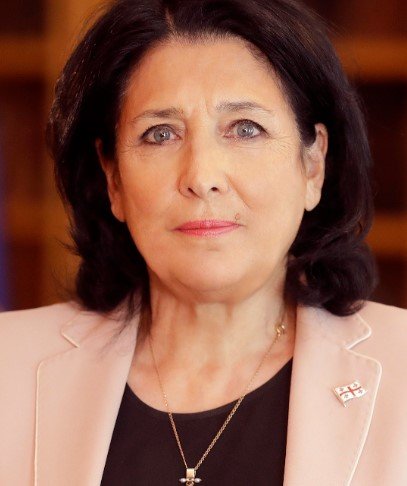Georgia’s political landscape took a notable turn as former President Salome Zurabishvili met with U.S. Senator Steve Daines during his official visit to Tbilisi. The encounter, held under the banner of Zurabishvili’s ‘Resistance Platform,’ highlighted both internal political tensions and Georgia’s rising strategic importance in U.S. foreign policy calculations.
Zurabishvili didn’t hold back about the gravity of the situation. She told Senator Daines about a range of domestic challenges—from alleged legal breaches to the broader implications these have on Georgia’s democratic trajectory. More than that, she flagged the strategic risks facing the U.S. in the region, stressing the need for Washington to pay closer attention.
The former president’s message was clear: Georgia isn’t just a small country dealing with local issues—it’s a pivotal piece on the geopolitical chessboard where America’s interests could be at stake.
Opposition Meets with U.S. Officials as Political Tensions Rise
Interestingly, Senator Daines, a Republican who sits on the Senate Foreign Relations Committee, chose to meet exclusively with opposition figures like Zurabishvili during his visit. This decision sparked conversations about what it says regarding U.S. views on Georgia’s internal politics and democratic health.
Zurabishvili herself pointed out how meaningful this was, implying that it signals growing concern among American policymakers about the direction Georgia is headed. The ‘Resistance Platform’ sees this as a moment to voice opposition perspectives, warning against the possible erosion of democratic norms.

Of course, Senator Daines didn’t limit his visit to the opposition. The U.S. Embassy in Georgia confirmed that his trip through the Caucasus also includes meetings with government representatives in Tbilisi, along with stops in Baku and Yerevan. The senator is juggling a complex balancing act, aiming to hear all sides amid a tense political atmosphere.
How Georgia’s Position Shapes U.S. Strategy in the Caucasus
Georgia sits in a tricky spot—literally and figuratively. Nestled between Russia, Turkey, and the broader South Caucasus region, it plays a critical role in regional stability and energy transit routes. That makes it strategically valuable for the U.S., especially given ongoing tensions with Russia and the volatile security environment.
Zurabishvili’s warnings about strategic risks aren’t just political rhetoric. They echo long-standing concerns about Georgia’s vulnerability to outside influence, internal instability, and the challenges of keeping democratic reforms on track.
The U.S. has historically supported Georgia’s Euro-Atlantic aspirations, including NATO and EU integration. However, the shifting domestic landscape, marked by political polarization and legal controversies, complicates these ambitions. Washington’s attention to these factors reflects a pragmatic approach—Georgia matters, but the path ahead is anything but smooth.
A Closer Look at U.S. Engagement in Georgia and the Caucasus
Senator Daines’ visit underscores a broader U.S. interest in the Caucasus, a region often overshadowed by bigger geopolitical stories but no less important. The visits to Baku, Yerevan, and Tbilisi reflect Washington’s desire to engage with all key players, balancing relationships amid regional conflicts and alliances.
The diversity of contacts shows the U.S. trying to gather a well-rounded picture of the challenges and opportunities across the Caucasus.
This approach hints that while Washington values Georgia as a strategic ally, it is equally cautious. The emphasis on meeting opposition groups signals concern about democratic backsliding and legal integrity, while talks with government officials aim to maintain stable ties.
A Tumultuous Political Climate Fuels Debate Over Georgia’s Future
Back home, Georgia is wrestling with its political future. Polarization is intense, and the opposition, represented by figures like Zurabishvili, often accuses the government of eroding democratic freedoms.
Zurabishvili’s Resistance Platform emerged as a significant voice calling for change and alerting both domestic and international audiences to what it sees as serious governance issues. The recent meetings with U.S. officials come as part of a broader effort to gain support and raise awareness beyond Georgia’s borders.
The situation isn’t black and white. Supporters of the government argue that reforms are underway and that opposition groups exaggerate problems for political gain. Meanwhile, opposition activists worry that without international attention and pressure, Georgia’s democratic foundation could crumble.
As these debates rage, the eyes of powerful neighbors and allies like the U.S. remain fixed on Tbilisi, making every move crucial for the country’s direction.
Zurabishvili’s meeting with Senator Daines shines a spotlight on Georgia’s challenges and strategic value, capturing a snapshot of a nation at a crossroads—politically fraught but undeniably important in the wider regional puzzle.
